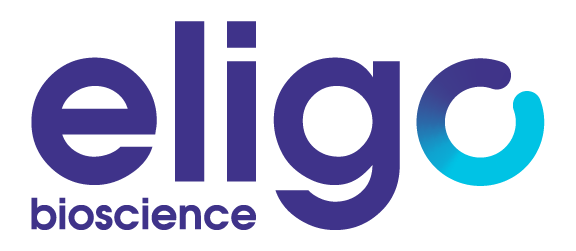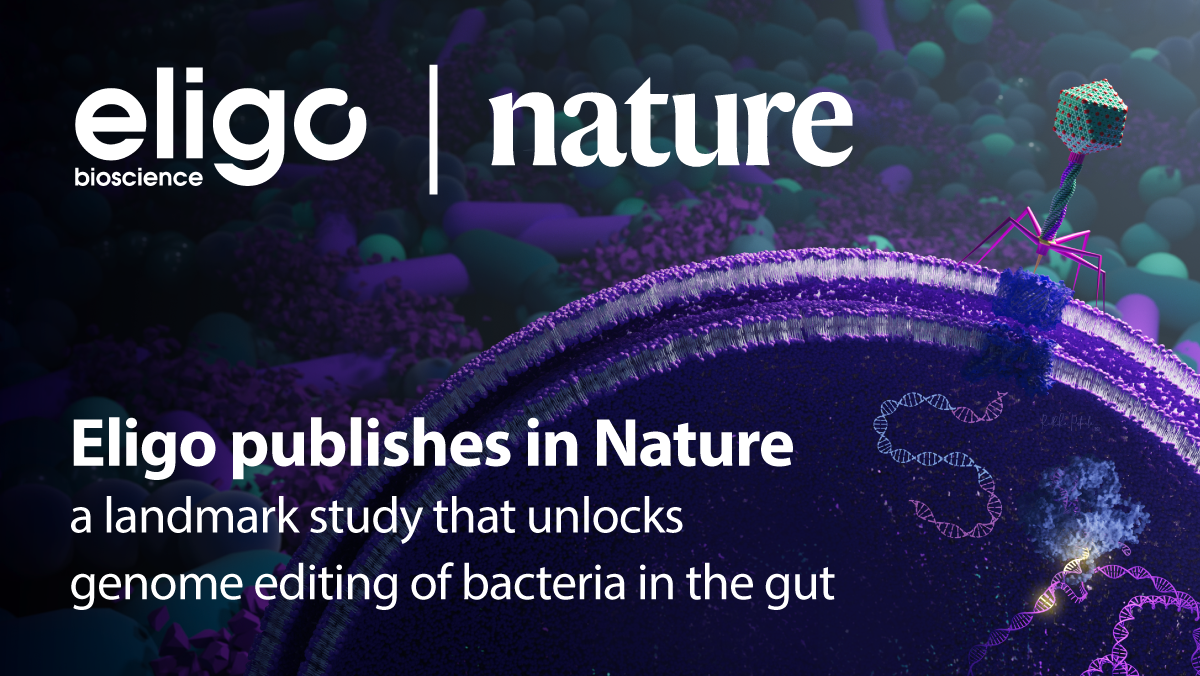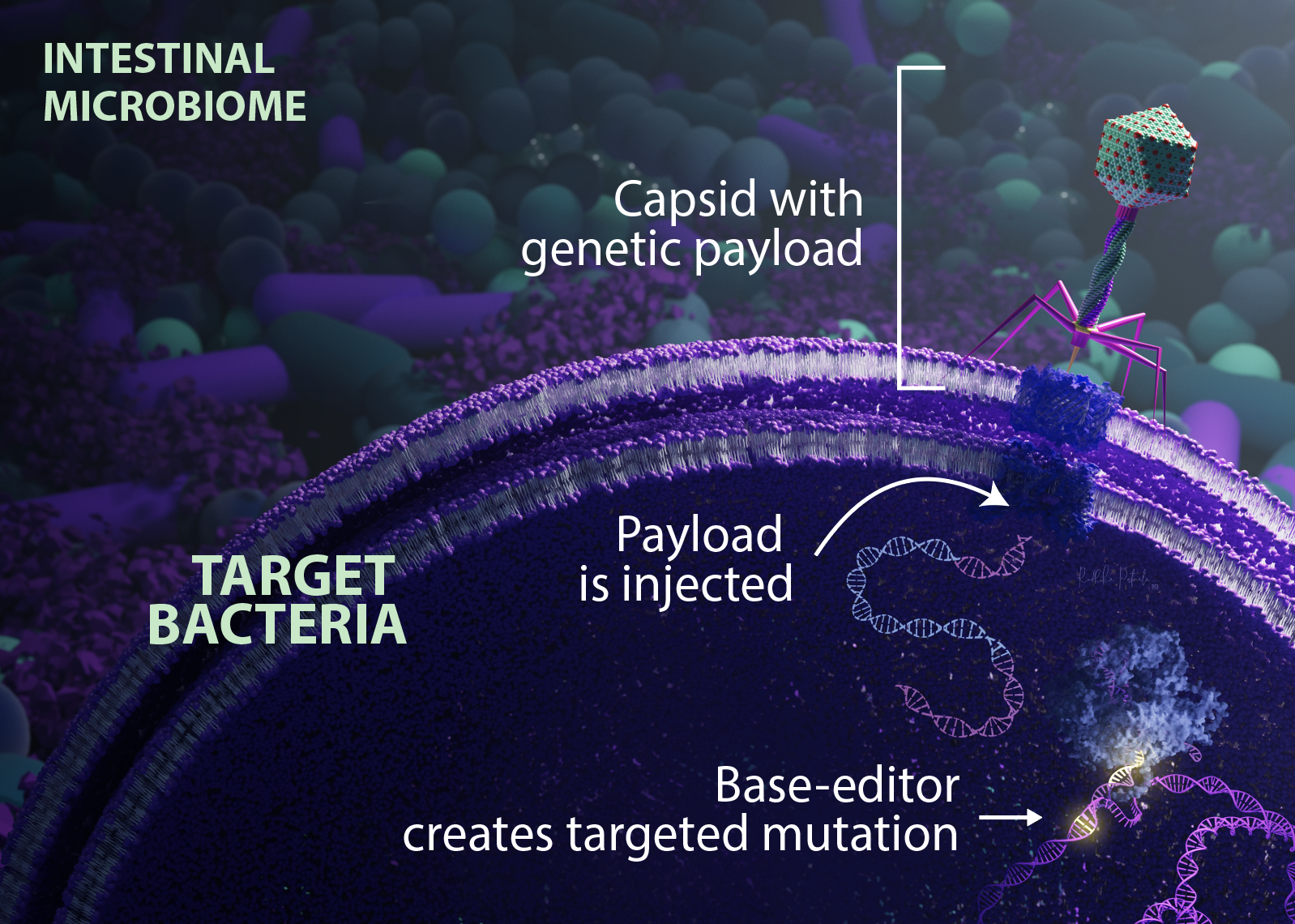Eligo Publishes a Landmark Study in Nature That Unlocks Genome Editing of Bacteria in the Gut
July 10, 2024
• For the first time, a team of scientists at Eligo has demonstrated it was possible to genetically modify bacteria with nearly 100% efficiency directly in the gut of animals.
• This work provides scientists with a novel strategy to better understand how genes from our microbiome drive disease, as well as creates new opportunities for the development of innovative therapies.
Paris, FRANCE – July 10 2024 – Eligo Bioscience, a pioneering gene-editing company focused on addressing diseases driven by the expression of bacterial genes from the microbiome, publishes a landmark study in Nature that unlocks Genome Editing of Bacteria in the Gut.
A novel chapter for genome editing: from human genes to bacterial genes
Since the advent of gene therapies in the 1970s, culminating in the recent approval of the first CRISPR-based drugs, researchers have made significant strides in delivering DNA to various cell types and organs to correct genetic defects. Until now, however, a large proportion of the genes carried by humans remained completely out of reach: the microbiome.
The microbiome, composed of billions of commensal bacteria, is essential to our health and the proper functioning of our immune system. However, we are discovering a growing number of bacterial genes implicated in chronic and serious diseases: from bacterial peptides that can trigger autoimmune diseases to bacterial virulence factors that contribute to inflammatory diseases, tumor formation, and neurodegenerative diseases. As it becomes clearer that non-targeted therapeutics affecting microbiome composition can cause serious adverse events and side effects, it is critical to develop novel approaches to edit the microbiome in a targeted way.
“What Eligo Bioscience has achieved shows that it’s now possible to make specific changes to the DNA of bacteria in the gut, similar to how scientists have been editing human genes to investigate or treat genetic disorders,” said David Bikard, co-founder of Eligo Bioscience and researcher at the Institut Pasteur in Paris.
A precise and efficient method
Achieving efficient in vivo gene editing of bacteria requires both an effective delivery method and a robust editing system.
In a tour de force, Eligo demonstrated the ability to engineer, produce, and purify a bacteriophage-derived capsid containing a synthetic DNA payload encoding a base-editor system.
After oral administration to mice, the capsid delivered the payload with extreme efficiency and precision to target bacterial populations residing among the hundreds of bacterial species in the mouse gut. Remarkably, the system could precisely inactivate antibiotic resistance genes or virulence factors by creating single-base pair mutations in the corresponding genes. When targeting E. coli strains colonizing the mouse gut, the technology modified the target gene in over 90% of the bacteria, reaching up to 99.7% in some cases. These modifications remained stable for at least 42 days.
Jesus Fernandez, Eligo VP of Technology and a senior author of the study, highlights how “this achievement is the culmination of eight years of work by the team at Eligo Bioscience and represents a paradigm shift in microbiome research. This leap forward provides Eligo with a unique edge within the industry to develop novel genetic medicines, as well as to find novel targets. We finally now have a tool to interrogate the role of specific bacterial genes in health and disease.”
“This technology enhances Eligo’s pioneering arsenal of in-vivo editing tools for the microbiome, and broadens the landscape of addressable therapeutic targets in the gene editing field”, said Xavier Duportet, CEO and co-founder of Eligo.
Read the paper in Nature here.
—
About Eligo Bioscience
Eligo Bioscience is the world leader in microbiome in-vivo gene editing and is advancing a highly differentiated pipeline of precision medicines to address unmet medical needs in immunoinflammation, oncology, and infectious diseases driven by the expression of deleterious bacterial genes.
Eligo was founded by Luciano Marraffini (Professor at The Rockefeller University and cofounder of Intellia Therapeutics, Timothy Lu (Professor at MIT, and CEO at Senti Biosciences), Dr. David Bikard (Professor at Institut Pasteur) and Xavier Duportet (MIT TR35, Young Global Leader, and Termeer Fellow).
Eligo was named a Technology Pioneer by the World Economic Forum and received venture capital funding from Sanofi Ventures, Khosla Ventures, BPI France, and Seventure Partners.
—
For more information about Eligo Bioscience and our latest research, please visit Eligo’s website: https://eligo.bio/
Contact: [email protected]
Artwork Credit: Radhika Patnala Sci-Illustrate


